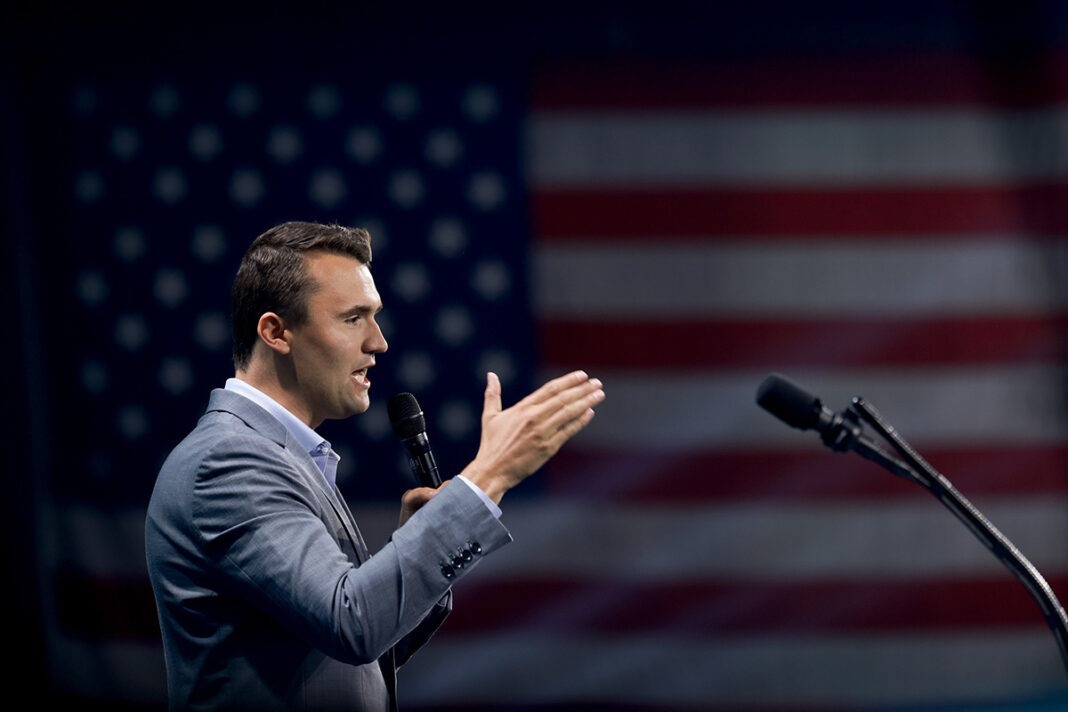U.S. Visa Revocations Following Reactions to Charlie Kirk’s Assassination
In a significant development following the shocking assassination of conservative activist Charlie Kirk, the U.S. Department of State announced the revocation of visas for at least six foreign nationals who publicly celebrated his death. This decision underscores a growing tension regarding the boundaries of free speech, especially concerning political figures, and the implications of these actions on international relations.
The Context of Visa Revocations
On October 14, 2025, the State Department took to Twitter to assert, “The United States has no obligation to host foreigners who wish death on Americans.” This statement came in the wake of harsh reactions on social media from various foreign nationals, leading to their visa cancellations. The State Department elaborated that they are actively reviewing and identifying others who may have similarly crossed the line in their expressions of joy over Kirk’s assassination.
Kirk, a prominent figure known for his strong stances on conservative issues and the founder of Turning Point USA, was killed on September 10, 2025, during an event at Utah Valley University. His death sparked a wave of expressions from individuals on social media—some gloating, others mocking—about the nature of his political activism and the consequences of his views.
Public Reactions to Kirk’s Death
Many of the comments that led to visa revocations were particularly inflammatory. For instance, a South African national ridiculed the grief surrounding Kirk’s murder, claiming that it was simply an expected outcome of what he termed “racist rallies.” In another instance, a Mexican national remarked that Kirk “died being a racist,” insinuating that such ideologies deserve lethal consequences.
One of the most notorious comments came from Brazilian comedian Tiago Santineli, who publicly declared that Kirk “DIED TOO LATE” and made disturbing comparisons to Hitler, suggesting that earlier intervention could have prevented Kirk’s rise. These comments not only reflect a broader sentiment among certain left-leaning sections of society but also highlight the contentious atmosphere surrounding political discourse in the U.S.
The Legal and Political Implications
The visa revocations raise several questions about free speech and the right to express political opinions—even those that seem extreme or hateful. Secretary of State Marco Rubio reinforced this point when he stated, “If you are here on a visa and cheering on the public assassination of a political figure, prepare to be deported.” The swift action taken against the foreign nationals signals a clear message from the U.S. government: there are consequences for those who celebrate acts of violence, especially in the context of political assassination.
This hardline stance was echoed by Attorney General Pam Bondi, who faced backlash from within conservative circles for labeling the reactions as “hate speech.” She emphasized that while freedom of speech is a foundational right, it has its limits, particularly in the aftermath of violence.
Celebrations and Backlash
The outpouring of enthusiasm from a segment of social media users celebrating Kirk’s death also resulted in professional repercussions. Several individuals, identified through their real names and images, were fired by their employers for their comments, illustrating the fine line between personal beliefs and professional conduct in the digital age.
Vice President J.D. Vance, during a guest appearance on Kirk’s popular podcast shortly after his death, challenged listeners to report those celebrating Kirk’s assassination, suggesting that the administration would prioritize dismantling institutions that foster divisive rhetoric and violence.
Presidential Recognition
In a poignant moment reflecting the complex emotions surrounding this issue, President Donald Trump awarded Kirk a posthumous Presidential Medal of Freedom on the same day as the announcement of the visa revocations. During the ceremony, Kirk’s wife, Erika, accepted the honor in the White House Rose Garden, while Trump shared that Kirk “knew that the fight to preserve our heritage is waged not only on the battlefield and in the halls of power but also in the hearts of our nation’s youth.”
Conclusion
The actions taken by the U.S. State Department serve as both a reinforcement of national values and an open question about the nature of discourse in an increasingly polarized world. As the country grapples with the implications of free speech in the context of political violence, this incident with Charlie Kirk continues to reverberate through both political and social spheres.



